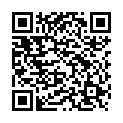|
|
|
| Module code: KIM-IUE |
|
|
2V+2U (4 hours per week) |
|
6 |
| Semester: 3 |
| Mandatory course: no |
Language of instruction:
German |
Assessment:
Project work
[updated 21.10.2024]
|
DFI-IUE Computer Science, Master, ASPO 01.10.2018
, semester 1, optional course
KIM-IUE (P221-0207) Computer Science and Communication Systems, Master, ASPO 01.10.2017
, semester 3, optional course
PIM-IUE (P221-0207) Applied Informatics, Master, ASPO 01.10.2017
, semester 3, optional course
PIM-IUE (P221-0207) Applied Informatics, Master, SO 01.10.2026
, semester 3, optional course
|
60 class hours (= 45 clock hours) over a 15-week period.
The total student study time is 180 hours (equivalent to 6 ECTS credits).
There are therefore 135 hours available for class preparation and follow-up work and exam preparation.
|
Recommended prerequisites (modules):
None.
|
Recommended as prerequisite for:
|
Module coordinator:
Prof. Dr.-Ing. Pascal Stoffels |
Lecturer:
Prof. Dr. Maximilian Altmeyer
Prof. Dr.-Ing. Pascal Stoffels
[updated 11.10.2024]
|
Learning outcomes:
After successfully completing this module, students will be able to define personas and user stories and to identify requirements from these to support employees in production.
They will be able to design and implement assistance systems for production using various technologies.
They will be able to describe the basic principles of user experience, differentiate these from related concepts such as usability and explain the user-centered design process, while also applying this knowledge to the implementation of interactive systems in a production context.
They will be able to explain and apply prototyping concepts and discuss their advantages and disadvantages.
Students will be able to explain and apply prototyping concepts and discuss their advantages and disadvantages.
[updated 21.10.2024]
|
Module content:
Introduction to production
Worker guidance systems (pick-by-light, pick-to-light, AR...)
Component identification technology
Human-computer interaction, user experience, usability, user-centered design process
User needs, problem statements, personas, scenarios
Prototyping methods
Evaluation of interactive systems in a production environment
[updated 21.10.2024]
|
Recommended or required reading:
[updated 21.10.2024]
|


